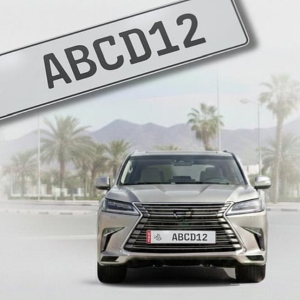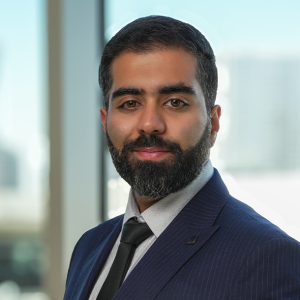A smarter future for your everyday parking hassle
Parking in Abu Dhabi is about to get a lot easier—and smarter. If you’ve ever circled around city blocks, wasted time, or missed appointments because of parking woes, relief is on the way. In a bold move that blends technology with urban comfort, the city is planning a massive shift in its parking system, and yes, artificial intelligence (AI) is leading the change.
This isn’t just another app or ticketing method—it’s a complete reimagining of how vehicles and infrastructure interact in the capital. Soon, you might not have to worry about coins, cards, or guessing if you’ve parked legally. With AI in control, Abu Dhabi is setting the stage for a seamless, data-driven parking experience that promises to ease congestion, save time, and bring order to the urban chaos.

Why change is needed now more than ever
Abu Dhabi has grown rapidly over the past two decades. With new residential communities, malls, business districts, and tourist hotspots emerging all over the city, parking has become one of the most pressing everyday issues for residents and visitors alike. It’s no longer just about finding a spot—it’s about doing it without the stress, confusion, or risk of fines.

City authorities have realized that the current parking infrastructure, while functional, needs a major tech boost. And what better way to tackle this than using AI? The goal isn’t just to improve convenience but to also optimise urban space, reduce traffic emissions from circling vehicles, and provide a better quality of life for everyone.

How artificial intelligence will transform the experience
So, what exactly does an AI-powered parking system look like?
Imagine this: You enter a popular area, and your car’s dashboard or mobile app already tells you exactly where a free parking space is available. It even tells you the pricing, the time limits, and whether it’s suitable for long-term parking. There’s no more guesswork.
AI will work behind the scenes through real-time sensors, predictive analytics, and advanced data modelling. The system can study parking patterns across the city, understand demand in specific zones, and adjust availability, pricing, or time limits accordingly. In short, it’s a self-learning ecosystem that evolves to serve you better.
And that’s not all. Enforcement will also become smarter and fairer. With camera-enabled vehicles and automated number plate recognition systems, the AI will ensure people follow the rules, but in a way that feels less intrusive and more efficient. Fewer arguments. Fewer surprises. Just smoother operations.
Smart parking means more than just technology
For the average person, it means one thing: relief. Less time looking for parking means more time for things that truly matter—like family dinners, important meetings, or spontaneous coffee catch-ups.
But smart parking also means smarter cities. Abu Dhabi is investing in more than just convenience; it’s investing in an ecosystem where public transport, car sharing, electric vehicle charging, and pedestrian safety all work in harmony. And parking plays a critical role in that puzzle.
As AI manages space usage better, it can lead to more balanced planning—freeing up areas for green spaces, reducing overcrowding, and improving overall traffic flow. It’s urban evolution, and Abu Dhabi is stepping into the future with confidence.

How this will affect you and your daily routine
If you live in Abu Dhabi or visit regularly, expect some changes in how parking is assigned, billed, and monitored. But these changes are designed to benefit you.
You may soon use mobile apps or dashboard integrations to find spots, check availability in real-time, or even book a space in advance. If you drive an electric car, you might be directed to a charging-enabled bay. If you’re staying only for a few minutes, the AI could suggest temporary bays with reduced or free fees. The aim is to personalise parking based on who you are and what you need.
Also, expect smoother interactions with parking enforcement. Because the system is data-led, there will be fewer errors, more transparency, and less frustration. If you’ve ever received a fine without understanding why, those days may soon be over.
The people behind the technology
This isn’t just a tech story—it’s a human one too. Behind these AI systems are teams of engineers, planners, designers, and urban thinkers who understand that real change starts with people. They’re using smart cameras, cloud platforms, and machine learning models, but with a very human goal: to make life easier.
Public feedback is being taken seriously. The new system is being designed with inclusivity in mind, offering support for elderly drivers, people with disabilities, and tourists who may not be familiar with the city’s layout. It’s a system built for everyone—not just the tech-savvy.
What’s next for Abu Dhabi and the region
Abu Dhabi has always been forward-thinking, from its architecture to its sustainable goals. With this new AI parking upgrade, it sets an example not just for the UAE, but for cities across the region. Other cities are watching closely, eager to see how AI can be used in practical, everyday ways.
And this is just the beginning. Once the infrastructure is in place, we can expect integration with other smart city services—like AI-managed traffic lights, self-driving shuttles, and intelligent routing systems. Parking is simply the first domino to fall in a much bigger chain of urban innovation.

A step toward stress-free living
At the end of the day, this is about improving the small things that affect us every day. Parking may not seem glamorous, but it’s a part of daily life that impacts mood, productivity, and even air quality. With AI stepping in, Abu Dhabi is showing that even the most routine tasks can be reimagined for the better.
So, the next time you pull into a parking space without circling the block five times, remember—it’s not magic. It’s progress. And in Abu Dhabi, that progress is powered by artificial intelligence and a vision for a calmer, smarter future.
Do follow UAE Stories on Instagram













